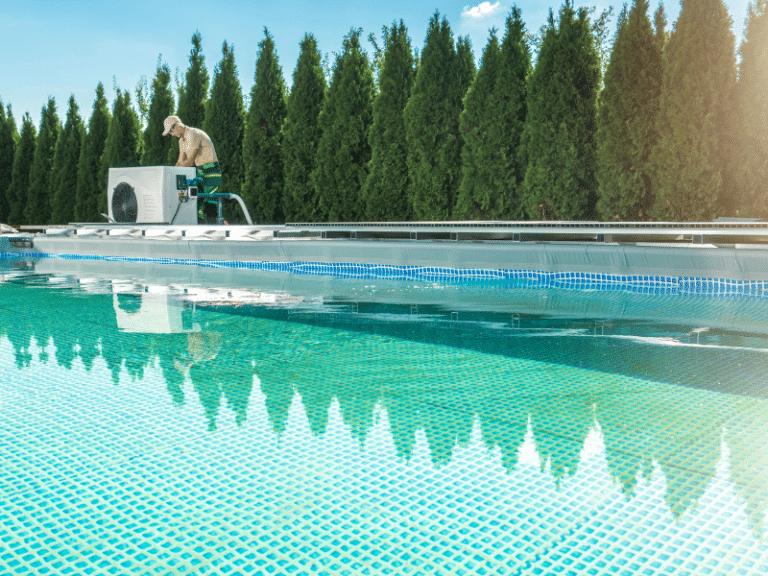Whether you’re eager to extend your swimming season or just want a comfortable dip on a cool evening, a well-functioning pool heater is essential. However, like any mechanical system, pool heaters can encounter issues from time to time. In this guide, we’ll explore some of the most common pool heater problems and provide troubleshooting tips to help you get your pool heater back on track.
Identifying Pool Heater Problems
Before we delve into specific troubleshooting tips, it’s important to recognize when your pool heater is experiencing issues. Here are some common signs that indicate you might be dealing with pool heater problems:
No Heat Output: If your pool water remains cold despite the heater being on, there’s an obvious problem.
Inconsistent Heating: If your pool water temperature fluctuates or doesn’t reach the desired level, it’s a clear indication of trouble.
Strange Noises: Unusual noises like banging, hissing, or screeching coming from your heater are red flags.
Gas or Water Leaks: Any signs of leaks around your heater should be taken seriously and addressed promptly.
Pilot Light Issues: If you have a gas heater, the pilot light should be consistently lit. If not, it’s a problem.
Now, let’s explore some common pool heater problems and how to troubleshoot them.
Insufficient Heat Output
Problem: Your pool heater is running, but the water is not heating up as expected.
Troubleshooting Tips:
- Check the Thermostat: Ensure that the thermostat is set to the desired temperature.
- Clean the Filter: A clogged or dirty filter can restrict water flow, reducing heat transfer. Clean or replace the filter as needed.
- Inspect the Pump: Make sure the pool pump is operating correctly and circulating water efficiently.
- Check for Airlocks: Air trapped in the system can hinder heating. Bleed the air from the system by following your heater’s manual.
Heater Won’t Start
Problem: Your pool heater doesn’t start when you turn it on.
Troubleshooting Tips:
- Gas Supply: Ensure that there’s a sufficient supply of gas to the heater.
- Electric Connection: If you have an electric heater, check the power supply, circuit breaker, and fuses.
- Pilot Light: For gas heaters, make sure the pilot light is lit. Relight it following the manufacturer’s instructions if necessary.
- Thermostat Setting: Ensure the thermostat is set to a temperature higher than the current water temperature.
Unusual Noises
Problem: Your pool heater is making strange noises.
Troubleshooting Tips
- Hissing or Whistling: This might indicate a water flow issue. Check for clogs, debris, or blockages in the plumbing.
- Banging or Clanging: These sounds could be due to mineral deposits or debris buildup within the heat exchanger. Consider cleaning or descaling the heat exchanger.
- Screeching or Squealing: These noises often indicate a malfunctioning blower motor or fan. Contact a professional for inspection and potential replacement.
Pilot Light Problems
Problem: The pilot light on your gas pool heater keeps going out.
Troubleshooting Tips
- Clean Pilot Orifice: A dirty or clogged pilot orifice can cause the pilot light to go out. Clean it carefully using compressed air.
- Check Gas Supply: Ensure there’s a consistent gas supply to the heater.
- Thermocouple Inspection: The thermocouple is a safety device that senses the pilot flame. If it’s malfunctioning, it might shut off the gas supply. Replace it if necessary.
Leaks
Problem: You notice water or gas leaks around your pool heater.
Troubleshooting Tips:
- Gas Leaks: If you suspect a gas leak, turn off the gas supply immediately and contact a professional for repair.
- Water Leaks: Check the connections, fittings, and pipes for any signs of water leaks. Tighten connections or replace damaged parts as needed.
Rust and Corrosion
Problem: Rust and corrosion are visible on your pool heater.
Troubleshooting Tips:
- Regular Maintenance: Prevent rust and corrosion by performing regular maintenance, cleaning, and inspections.
- Replace Damaged Parts: If you notice significant rust or corrosion on any components, replace them to prevent further damage.
In conclusion, understanding and addressing common pool heater problems can help you maintain a comfortable and enjoyable swimming experience. Regular maintenance, prompt troubleshooting, and professional assistance when needed are key to keeping your pool heater in top condition and extending its lifespan. Remember that safety should always be a top priority when dealing with gas heaters, and if you’re uncertain about any repairs, it’s best to consult a qualified technician.

